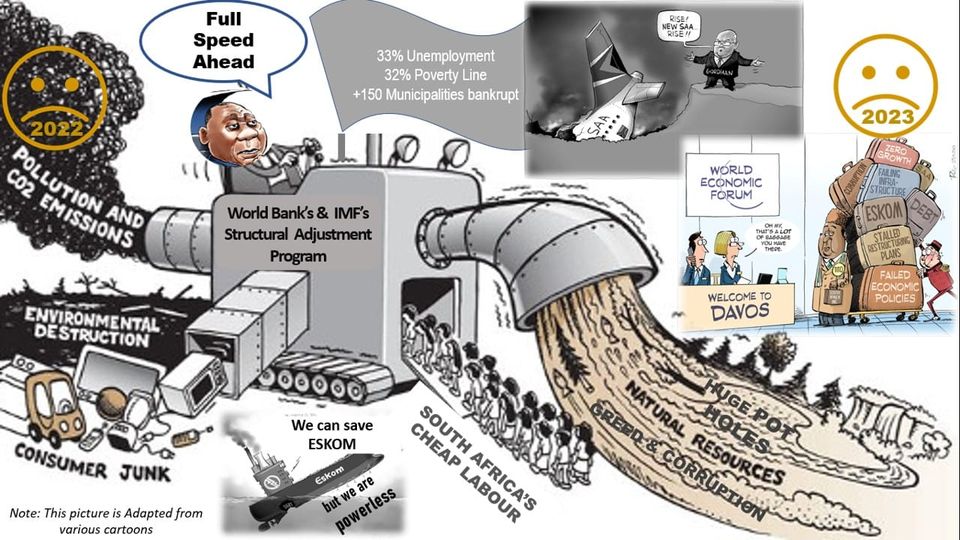|
Ramaphosa, the G20 and the Empty Promise of a Just Transition Now, as G20 president, Ramaphosa positions himself as the voice of Africa’s mineral sovereignty. But his message of justice contradicts his legacy of repeatedly siding with capital against workers and communities. Across the continent, the reality of the so-called green transition tells its own story. In Buhera, Zimbabwe, villagers face eviction to make way for lithium mines that will supply European electric cars. “Land is everything to us,” one community member told researchers. In Ulanga, Tanzania, farmers displaced by graphite mining say, “We cannot eat graphite, we cannot drink graphite.” In the DRC’s Ruashi district, cobalt extraction has left water contaminated and children sick, even as the mineral powers the world’s batteries. These are the communities that should be centred in G20 debates. Yet they remain invisible, while leaders and corporations negotiate supply chains and “investment opportunities” in their name. Ramaphosa often speaks of beneficiation, emphasising Africa’s need to build its own processing industries. However, there is no evidence that his government is genuinely committed to this. The Just Energy Transition has already been captured by elites, structured around loans that deepen debt and contracts that enrich politically connected firms. Motsepe’s African Rainbow Energy & Power is positioning itself as a key player in the renewable sector and is deeply invested in manganese mining in the Northern Cape. Once again, the people are asked to sacrifice land and livelihoods so that elites can profit and foreign capital can secure their “clean” energy future. The G20 moment could be an opportunity to confront these patterns, to insist on free, prior and informed consent for communities, to demand reparations for ecological destruction, and to build regional industrial capacity that serves African needs. But that would require a break with the logic of neoliberalism and elite accumulation. It would require leadership willing to put people before profit, even if it meant confronting global capital and curbing the power of domestic oligarchs. Ramaphosa has shown no sign of being that leader. What he offers instead is symbolism without structural change. He talks of justice while reinforcing the very system that made him rich. He speaks of solidarity while workers are shot or starved of options. He frames Africa as rising while communities are pushed off their land for minerals they will never benefit from. A just transition for Africa cannot be led by mining billionaires and presidents who answer to capital. It must be led by the people in Buhera, Ulanga, Ruashi and in the townships and villages of South Africa itself, those who know too well that the promise of minerals has always come at their expense. Unless Ramaphosa is willing to break with the system that produced him, the G20 will not be a platform for justice. It will be a stage for green colonialism in a designer suit. https://www.amandla.org.za/ramaphosa-the-g20-and-the-empty-promise-of-a-just-transition/K Back Charlize Tomaselli is a Research and Learning Facilitator at the Coalition for Human Rights in Development. |
|
||||||
|
|||||||




